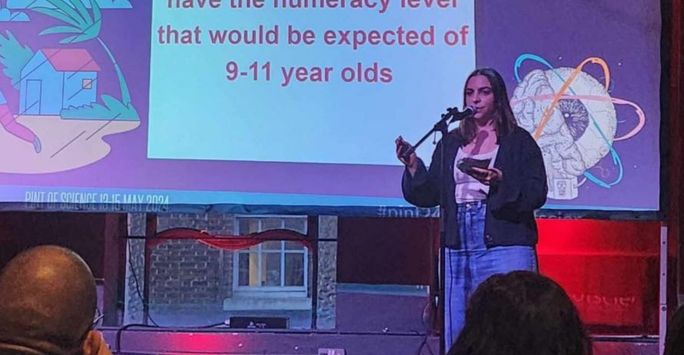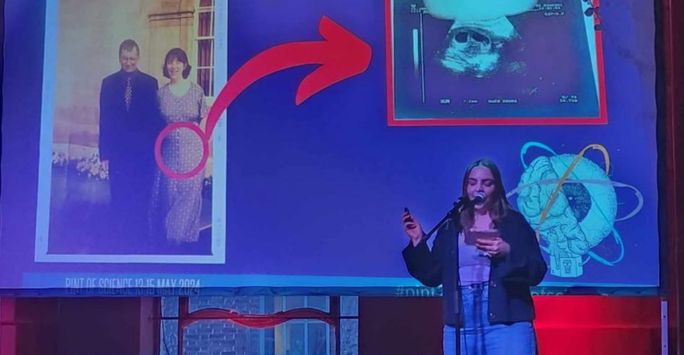
Student Doctor Vicky Bradley attended the Pint of Science event to present her talk on risk communication in the field of obstetrics and how these tools empower patients to make informed decisions.
Currently intercalating, Vicky is dedicating her time to studying an MRes in Clinical Sciences, during which she has developed risk communication tools to improve how information and risks of various modes of birth are discussed, aiding the decision-making process. The work is part of a wider study and Vicky shares how she hopes to make a meaningful impact based on her findings.
How did your journey into studying Medicine begin?
“I was inspired to do medicine because of my late father who suffered with epilepsy. As you can imagine, seeing his suffering was hard but the clinicians who supported me and my family made all the difference. This made me want to help not just patients but their loved ones too and improve the care we provide for them.
Sometimes it's not about the treatment we give but how we treat them as people.
What motivated you to intercalate and to do a MRes in Clinical Sciences?
I have always wanted to intercalate and do something a little bit different for a year. My RS3 supervisor recommended applying for the MRes to pursue the interest I have in obstetrics.

What inspired you to work on creating risk communication tools?
Communicating risks is a key part of helping patients understand their options and allow them to make fully informed choices.
Risk communication tools assist patients in understanding risks, particularly those who may not be as confident with maths and English skills. Therefore, the accessibility of this information for patients empowers them to make the choices they feel are best based on evidence-based information. This can improve the trust they have with healthcare professionals.
What have you found exciting and challenging while focusing on this?
I have found speaking to people from the patient-public involvement groups, children’s centres and experts from the Winton Centre for Risk Communication in Cambridge to be some of the most exciting parts so far. Speaking to these people really reinforces how important improving communication in maternity care is.
Additionally, being part of a much bigger study which is called ‘Options’ is really exciting and rewarding. My work is one element of ‘Options’ which aims to predict emergency caesarean births and then provide information about the choices available and use risk communication to discuss the pros and cons of the options.
The most challenging parts of my work have been picking up new skills such as RedCAP and organising and hosting public patient involvement groups. However, these have been some of the most rewarding parts of my work so far.
Can you tell us more about the Pint of Science event?
The Pint of Science night was incredible. I think in research we can sometimes end up in a bubble, hence why getting PPI groups involved is so important. This night created an opportunity to share your research at a level aimed for the general public, rather than a conference style presentation. This is such a great way of making the public aware of ongoing research and help them to not only understand but make contributions too.”
Discover More
- Find out further details of the Options study (link)
- Interested in intercalation? Check out your intercalation options (link)